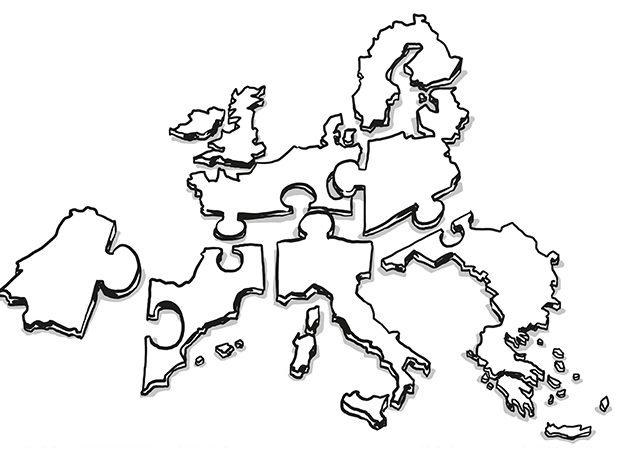Western governments and technology platforms have imposed several policy and technical sanctions against Russia. The scale and severity of these sanctions might unintentionally accelerate calls for technology nationalism and undermine global efforts to govern digital and emerging technologies.
The past few months have served as a reminder of the West’s influence over global technology policy. Following Russia’s invasion of Ukraine, Western governments have restricted exporting critical resources like semiconductors and telecommunication technologies to Russia. Two US-based primary handlers of global internet traffic terminated Russian access to internet cables. Platforms have undertaken a wide range of measures, including demonetising Russian ads, down-ranking content from Russian state-controlled media, halting the provision of goods and services, and much more. The SWIFT network removed Russian banks, and several consumer payment apps suspended their operations in Russia. The EU ordered social media platforms to take down content by Russian media under questionable legal authority. Some actors are even contemplating how internet governance communities can play a role in sanctions – a position that organisations like the Internet Corporation for Assigned Names and Numbers have refused to consider.
While the merits and efficacy of these measures will undoubtedly be subject to analysis for years to come, it is important to recognise the global environment in which they take place. Over the past few years, democratic and autocratic governments have increasingly called for more “sovereignty” over their digital economy and technology systems. Underpinning these demands are changing assumptions about the nature of globalisation and interdependence. Policymakers realise that participation in a complex network of economic and trade relationships creates new types of risks. Power is often concentrated within a few nodes that can exert relatively greater influence over the system. In other words, powerful states and firms can “weaponise” interdependence.
Observers in developing countries like India – where narratives around digital sovereignty are increasingly taking root – are noting how Western governments weaponised technology interdependence in the ongoing war. For instance, India’s Minister of State for Electronics Information Technology, Rajeev Chandrasekhar, recently warned that countries and technology platforms are taking “positions that are very partisan” and called for an “atmanirbhar” –or a self-reliant– Indian internet. These voices and actors, along with many others in the developing world, are paying attention to two realities. First, the size and variety of the digital toolkit available to Western governments to punish actors. Second, the enthusiasm with which Western technology companies have attempted to align their actions with the foreign policy priorities of their governments.
Although the comparative capabilities and political will of different states to weaponize interdependence is a matter of debate, the punishments being doled out to Russia undoubtedly indicate the West’s punitive capabilities in the technology sector. It will not be surprising if Western responses to events in Ukraine harden nationalist positions on technology policy around the world, particularly within governments that are aggressively nurturing their digital economy or have previously been subject to Western ire.
An Uncertain Future
What this means in practice is elusive. Over the years, “cyber sovereignty” has become associated with China’s extensive control over its internet network and its successful efforts to cultivate “digital champions” like Alibaba, Huawei and Tencent. A decade ago, it was easy to deride China’s behaviour as the actions of a lone authoritarian state. Today, however, at least two changes are apparent. First, even democratic countries, like India, EU member states, and countries in Africa, are calling for sovereignty over digital spaces and related infrastructure – albeit with little consistency regarding the meaning of the phrase. Second, internet networks and infrastructure are increasingly a subset of a much broader set of technology-related priorities that states are racing to secure, including rare earth minerals, semiconductor supply chains, telecommunication infrastructure, cross-border data flows, cloud infrastructure, platform and media companies, and more.
What concrete policy practices emerge from these trends is uncertain – given that states have a variety of interests in expanding sovereign control over the technology stack. Under the guise of sovereignty and nationalism, states may take legitimate measures that promote economic competitiveness and national security. More worryingly, states might use sovereignty as an excuse to clamp down on internet freedoms, relying on tools like network shutdowns, encryption backdoors, and other forms of censorship.
How Russia responds to crippling technology sanctions will shape the direction of some of these practices. Assuming that ongoing events do not lead to regime change, Moscow’s efforts to achieve its version of digital sovereignty are now a matter of survival rather than intent. Much will now depend on how it secures access to the internet and critical technologies like semiconductors. Moscow’s diplomatic position on technology policy in international institutions such as the Shanghai Cooperation Organization, the BRICS, or the United Nations will likely harden. Russia will likely become more reliant on China, given their political alignment over internet governance and global technology policy. Russia and China have pushed for digital sovereignty through international organisations for many years now. It is difficult to predict how these positions will change after the war and how the states they attempt to influence will react.
Policymakers and business leaders have often associated globalisation with peace and security. The geopolitics of emerging and digital technologies will force states and companies to reassess these assumptions and make uncomfortable choices about interdependence. The competition over trade and technology between the US and China already accelerated the prioritisation of national security concerns over transnational commerce. The war in Ukraine may very well mark another milestone in the reassertion of sovereign power over the internet and the securitisation of global technology supply chains.

Akhil is a Master of International Affairs candidate at the Hertie School. He was earlier a Junior Fellow at the Observer Research Foundation, New Delhi, where he studied Indo-Pacific security and the implications of emerging technologies on culture, society and geopolitics. In his spare time, he enjoys reading science fiction, struggles to learn Python, and surrenders to his Twitter addiction.
